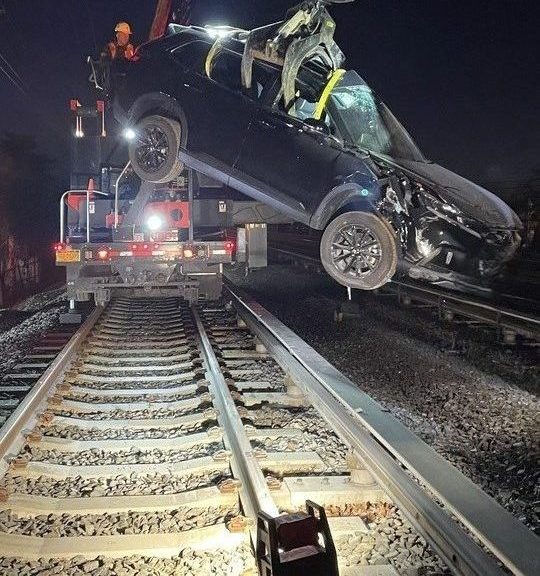As of Press Time, Awaiting Governor Paterson’s Signature
Legislation that would streamline the process to dissolve villages, towns and special districts overwhelmingly passed both the Assembly and Senate last week and as of press time was waiting for Governor David Paterson’s signature.
Introduced by Assembly Speaker Sheldon Silver, at the behest of Attorney General Andrew Cuomo and sponsored in the Senate by Majority Leader Malcolm Smith, proponents say the legislation – dubbed the New N.Y. Government Reorganization and Citizen Empowerment Act – is a “bipartisan legislative initiative” aimed at reducing costs for taxpayers by encouraging local government efficiency through consolidation.
Floral Park Mayor Kevin Greene, a volunteer firefighter, said the legislation compromises the safety and health of Floral Park by loss of local control of police, fire, sanitation, library and recreation services; legalizes capricious and audacious legislation that seeks to undermine the quality of life that has been equated with the Village of Floral Park for over a century; damages suburban quality of life by encouraging urbanization; eliminates self-determination and local governmental control; increases the cost of services by destroying volunteerism, e.g., our volunteer fire department; imposes the heavy costs of the dissolution process upon the village; and allows outsiders to determine the future of Floral Park.
“Our very way of life is being threatened by our state officials,” Mayor Greene stated in a mass email he circulated to get the word out. “Simplifying this process makes our village vulnerable to outside influences and costly unnecessary expenditures. Touting consolidation without merit on the village level of government, closest to the people, is foolish and threatens to change the suburban character that we love. Bigger government is not better government.”
According to the attorney general, the state’s overlapping governments saddle residents with the nation’s highest local taxes. In all, Cuomo notes that there are more than 10,500 governmental entities imposing taxes and fees across New York State. This includes towns, villages, districts and special districts such as water, sewer and lighting districts.
The bill specifically applies to towns, villages, districts, special or other improvement districts, library districts and other special districts created by law. It does not, however, apply to school districts, city districts and special purpose districts counties have established under local law.
The bill states: “…the astounding number of local governments in New York has contributed to the rise of local real property taxes. Throughout the state there are large pockets of overlapping taxing entities … Nassau and Suffolk Counties combined have over 340 special districts…”
The legislation does not mandate consolidation. Rather, it restructures the law to allow citizens, local officials and counties to make the decisions themselves.
“This bill was an attack on our way of life. This isn’t New York City. It’s Nassau County,” Assemblyman Tom Alfano said. “I will not compromise our quality of life and community’s safety for the sake of political points.”
Alfano, along with fellow Assemblyman Tom McKevitt, recently welcomed volunteer firefighters to Albany. The firefighters, including several from Floral Park, traveled to the state capital in protest of the bill.
“The bottom line is this. This bill was a complete attack on our villages, fire departments, libraries and the ability of communities being able to govern themselves,” Assemblyman Alfano continued.
“It’s about neighborhoods and quality of life. Places like Floral Park, Stewart Manor, New Hyde Park and Bellerose Village like the fact they can call a trustee and get action. They count on quality of life programs like the Rec Center and police. They know their mayors and get quick action on concerns. They also have the piece of mind when there is a fire or emergency that the men and women of the fire department are on the scene in minutes and know the community and its people.”
In part, the bill explains that the filing of a petition containing the signatures of at least 10 percent of the electors or 5,000 electors (whichever is less) in each local government entity to be consolidated or dissolved triggers the citizen-initiated process. For small entities with 500 or fewer electors, the petition can contain the signatures of at least 20 percent of the electors.
Further, the petition requires a referendum to be held in each of the entities. If a majority of the electorate in each entity votes in favor of consolidation or dissolution, then the entities’ governing body or bodies must meet and develop a proposed written plan to implement the voters’ decision, followed by the plan’s publication and public hearings.
Consolidation or dissolution takes effect when the governing body or bodies approve a final version of the plan. However, citizens may, within 45-days after the plan’s final approval, petition for a permissive referendum on the question whether the plan should take effect. To compel such a referendum, the petition must contain the signatures of at least 25 percent or 15,000 electors, whichever is less, in each local government entity to be consolidated or dissolved, the bill reads.
Senator Craig Johnson, who voted against the bill because he didn’t believe it’s in the best interest of his 7th District constituents, argued the low voter threshold. He disagrees that a referendum based on the signatures from one out of every 10 people living within a local government reflects democracy. “A low petition threshold leaves many of smaller government entities open to the whims of either a disgruntled few or the agenda of an outside organization,” he said.
The legislation gives counties the authority to force a referendum on abolishing local governments, including fire and other public safety districts, Johnson said.
With 33 villages in his district, including Floral Park, South Floral Park, Stewart Manor and Bellerose, the senator also criticized how the legislation failed to exempt fire protection districts and village fire departments. At first, Senate Republicans amended the legislation, exempting fire districts. The exemptions, however, never included village fire departments, Senator Johnson said.
Mayor Greene added, “This bill places the future of our village and our families in the hands of local and outside activists who can push for dissolution or consolidation, based upon abstract concepts and hide the facts from the community and its voters. Decisions on whether or not to dissolve or consolidate a local government should be a local decision made by informed citizens and informed elected representatives of those citizens. It should not be a decision made without study and all of the facts being presented.”
For more information about the New N.Y. Government Reorganization and Citizen Empowerment Act and to view an interactive map detailing special districts in New York State by county, visit www.oag.state.ny.us. For additional information, visit www.assembly.state.ny.us and search bill #A8501 or visit www.nysenate.gov and search bill #S5661.































